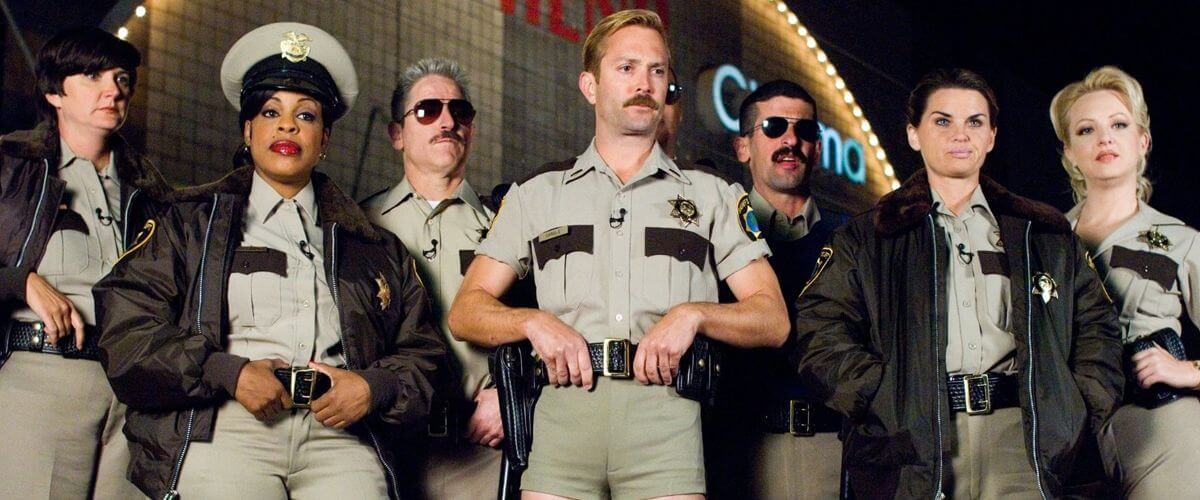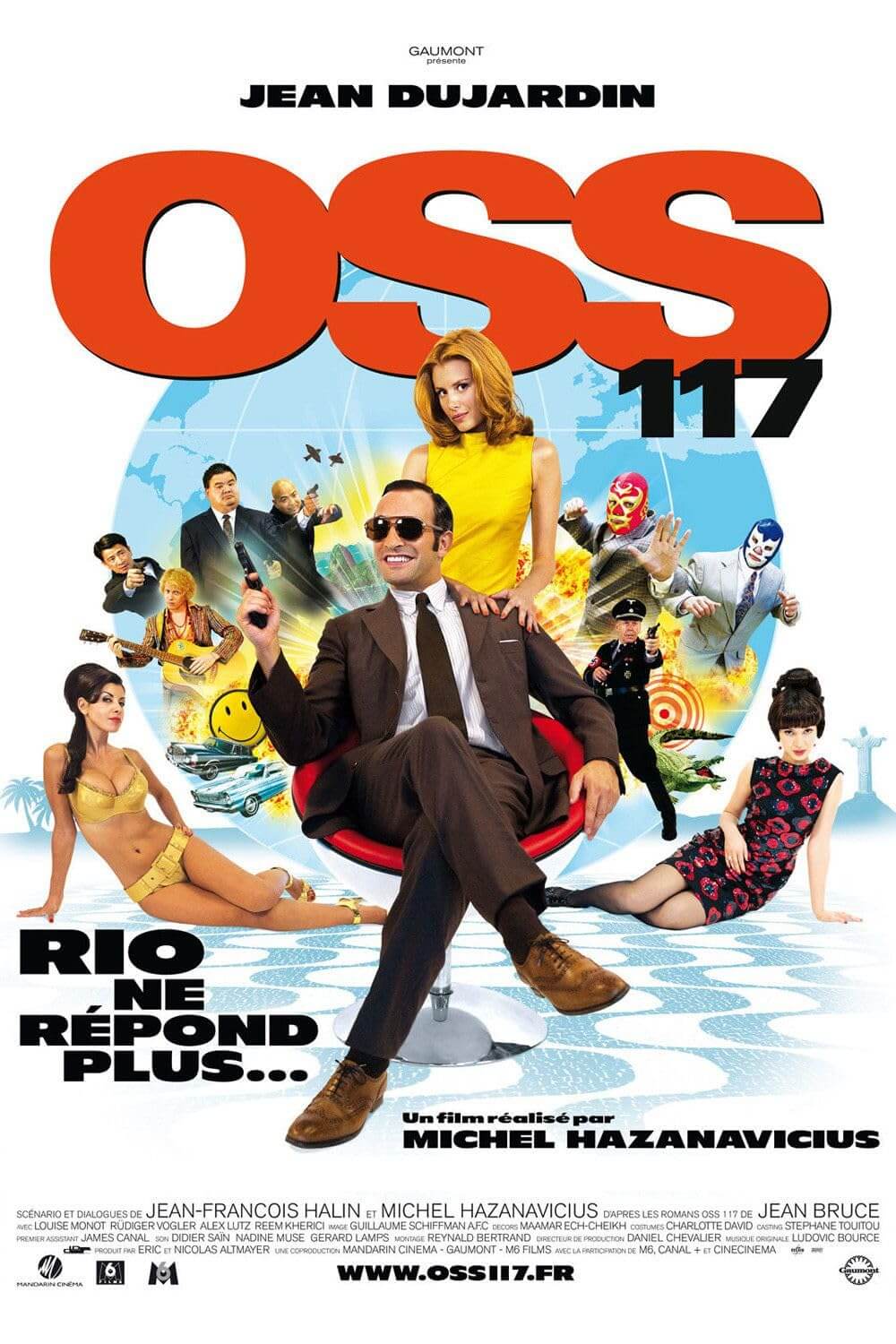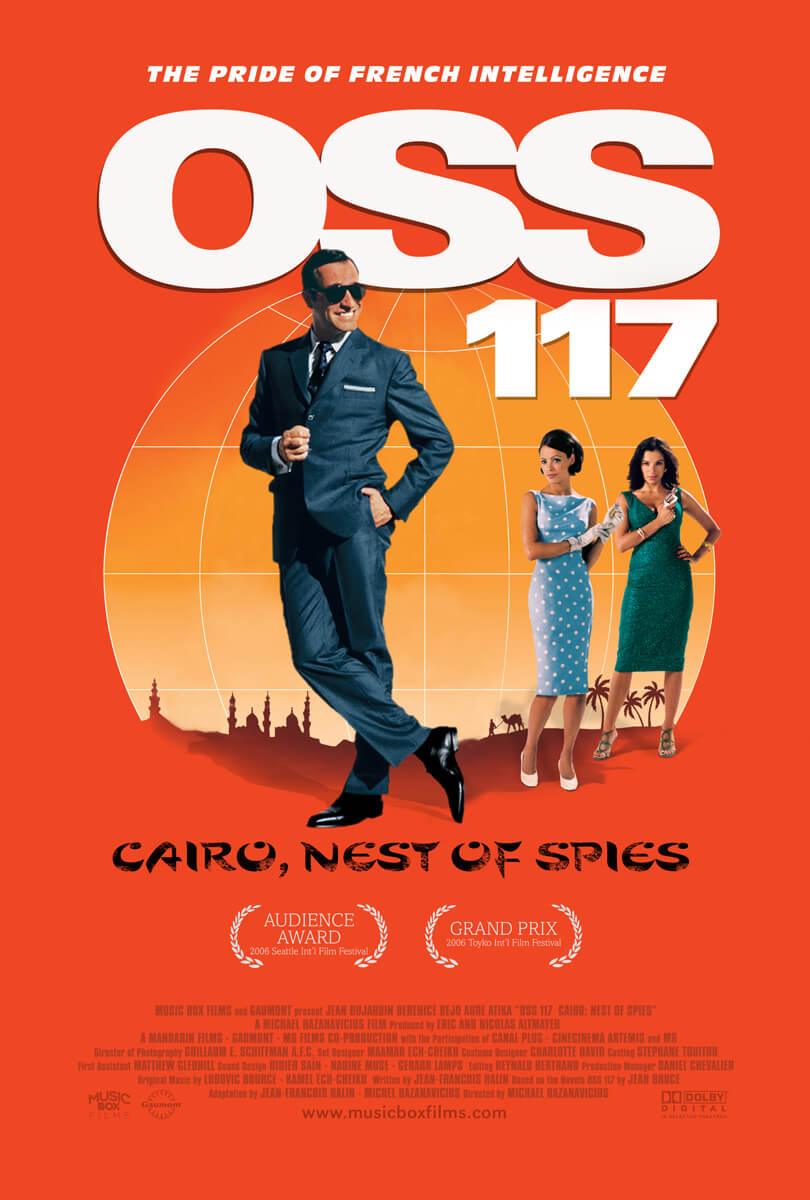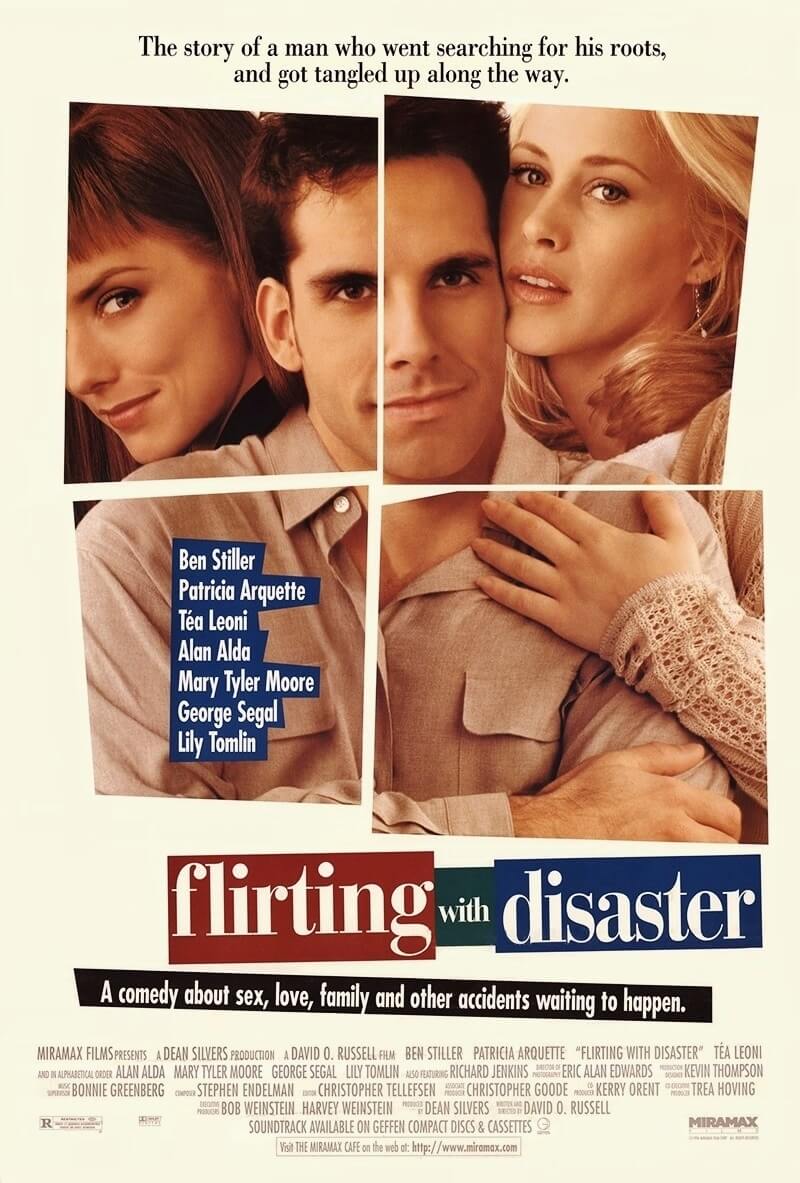
Reno 911!: Miami
By Brian Eggert |
The popular Comedy Central show Reno 911! makes its big-screen debut in Reno 911!: Miami (a title with too much punctuation). If you’ve never seen the show, it’s a mockup of COPS except a little funnier and set in Reno, NV. Filled with star-studded cameos, lots of swearing, and boobs galore, the film’s cast sheds all of their TV hindrances for their transition to motion pictures. But ultimately the movie is nothing the show wasn’t capable of, minus a few F-words and topless women. Television on the big screen just isn’t impressive. Throughout the movie, I felt as though I should be at home in my pajamas, only half-watching this movie just for noise in the background, while I busy myself with something that deserves my attention.
The story involves the officers of Reno 911! accepting an invitation to a law enforcement conference in Miami. Excited as children at the gates of Disneyland, upon arriving the group is crushed when told their names aren’t on the list. Refused admittance into the conference, the officers decide to make the best of a bad situation: they check into a dank motel and enjoy the spoils of Miami. Later, they discover the conference was contaminated with a poison and all officers in the area, save themselves, were quarantined inside. Reluctantly, the city of Miami puts the cops of Reno, NV in charge of the city’s safety. Antics ensue.
A college professor of mine asserted that TV imitates film, but film never imitates TV. As motion pictures came first and are generally regarded as art, TV remains jealous, always attempting to become film, though never quite reaching the prestige of cinema. In terms of form, TV is low art and film is high art. Cinema only works at making fun of TV; whereas TV attempts to emulate film and can never make fun of it. Given the history of TV-based movies wherein the film outdoes the show on which it’s based (see Mission: Impossible, The Fugitive, etc.), this opinion is hard to argue against.
Reno 911!: Miami desperately reaches for filmic standards by including a new “exotic” locale and an explosion or two, but accomplishes nothing the TV show was incapable of. The movie feels like the show moved from Comedy Central to HBO, as the TV-esque presentation varies little, save for the aforementioned swearing and nudity. These changes become obvious, if not pointlessly labored over—specifically, the nudity, which is literally shoved in the audience’s face as if to say, “We’re not on TV anymore! Look what we can show you now: Boobs!!!” The movie features cameos from Danny DeVito, The Rock, Paul Rudd, and regulars from the short-lived MTV sketch comedy show The State, of which several members of the Reno 911! cast are alums. These guest appearances were chuckle-worthy at best. Their inclusion desperately attempted to elevate the film, but instead reminded the audience that Reno 911!: Miami didn’t have any real stars of its own.
One mildly impressive sequence involves us spying on the cast Rear Window-style on their first night in their dank motel. In a single take, the camera moves between two exterior floors, peering in through windows, watching inebriated interaction on a lonely night. One officer makes passes on another, while others avoid being cornered by the pursuer. Most of them are plumb drunk; all of them are too pathetic to get dates. The camera eventually pulls back to reveal the whole motel wherein through their windows, we see several officers masturbating.
I wasn’t expecting cleverness from Reno 911!: Miami (and I didn’t get any cleverness, either); instead, I hoped for something worthy of the theater. I laughed plenty, but the laughs were the type of gross-out and shock-humor devices that don’t last; repeated viewing won’t be as fruitful as the first. I kept wondering why this film was made. Is the show that successful? Unless you’re a die-hard fan of the characters, there’s no reason to see this picture. Audiences looking for something other than TV on the big screen will be disappointed—it’s a meagerly glorified four-part episode.

Thank You for Supporting Independent Film Criticism
If the work on DFR has added something meaningful to your love of movies, please consider supporting it.
Here are a few ways to show your support: make a one-time donation, join DFR’s Patreon for access to exclusive writing, or show your support in other ways.
Your contribution helps keep this site running independently. However you choose to support the site, please know that it’s appreciated.
Thank you for reading, and for making this work possible.
Brian Eggert | Critic, Founder
Deep Focus Review







